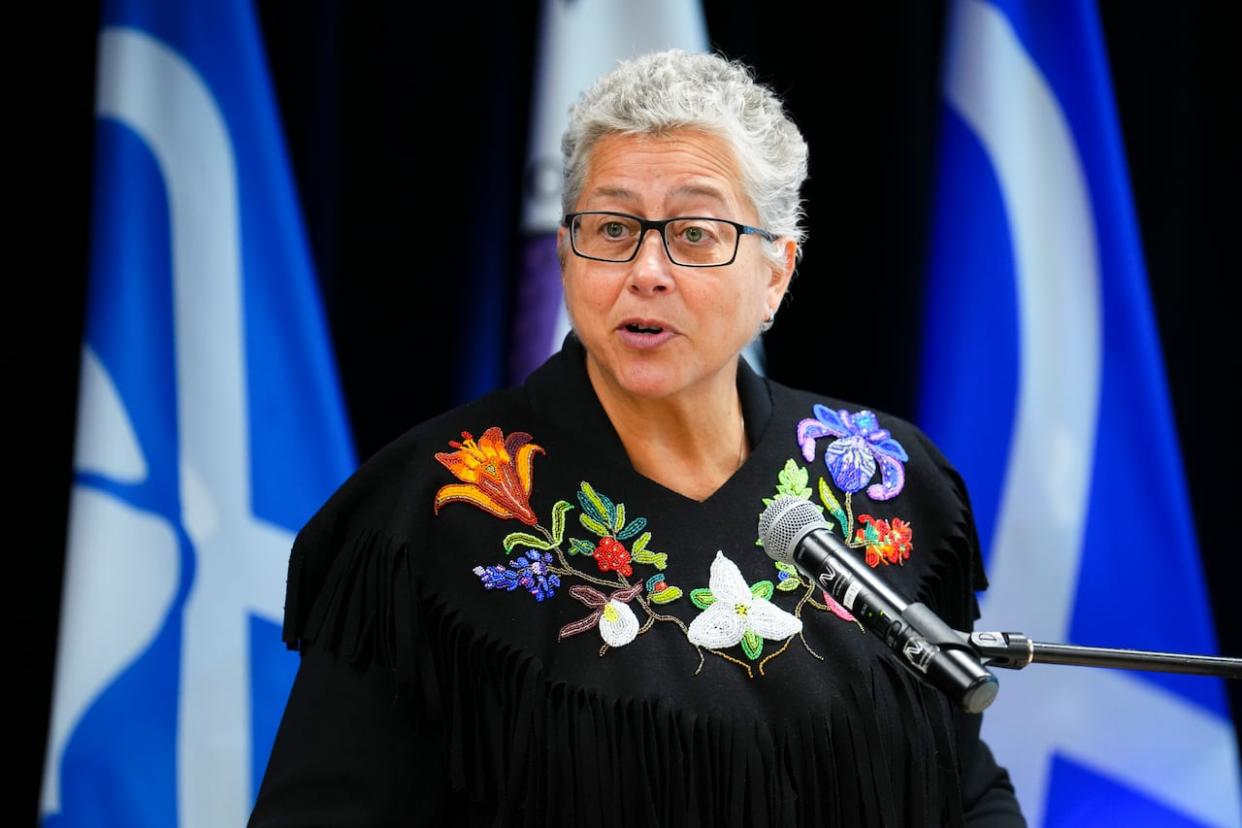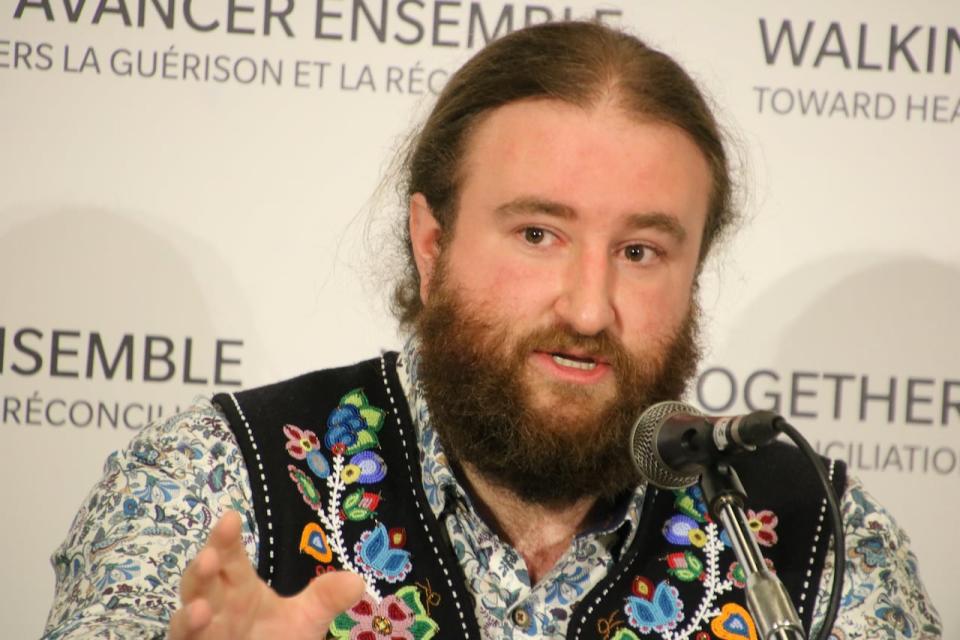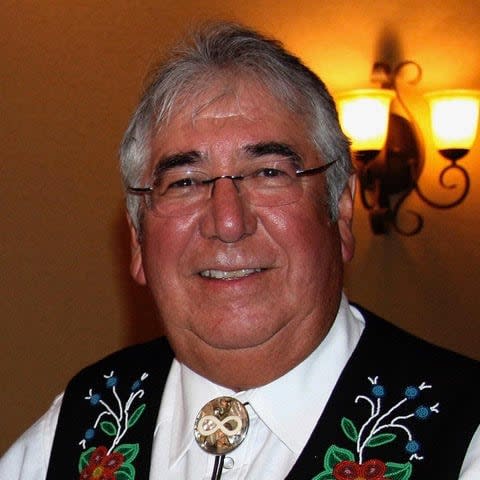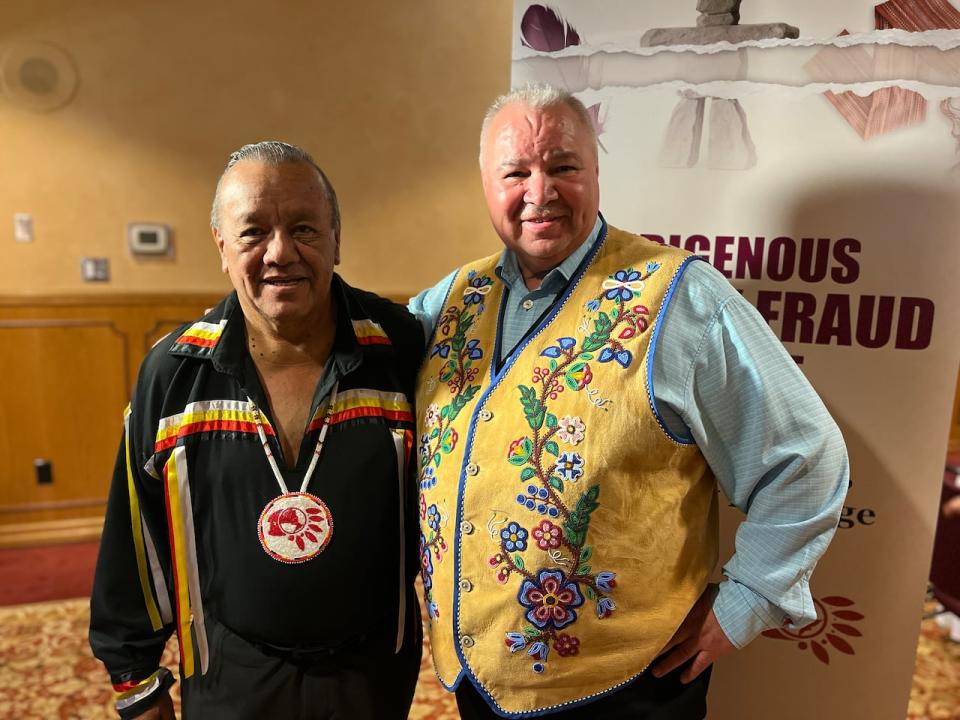Métis Nation of Ontario accuses Manitoba leaders of hypocrisy, politicking on identity issue

Ontario Métis leaders deny identity theft allegations made at the Indigenous Identity Fraud Summit in Winnipeg last week, accusing opponents of politicizing Métis identity, flip-flopping on past positions and circulating falsehoods.
During the two-day meeting, delegates from co-host organizations Manitoba Métis Federation (MMF) and Chiefs of Ontario called the Métis Nation of Ontario (MNO) race shifters who lack connection to the historic Métis Nation of the Prairies.
Mitch Case, regional councillor for the MNO's Huron-Superior Regional Métis Community, says that allegation is nonsensical and easily disproved.
"It's based on the Manitoba Métis Federation's political goals of being the only Métis government in Canada, which is not in any way historically accurate," Case said.
Case called the summit a "hate rally" in a Facebook post, and told CBC Indigenous he feels that way because it was based on "nonsense."
The MMF broke from the Métis National Council in 2021 following years of factionalism and turmoil fuelled largely but not solely by controversy over six disputed MNO communities.
MNO and the Ontario government jointly recognized the communities as historic in 2017, stretching the asserted homeland of the Métis Nation as far east as the Ontario-Quebec border.
MMF President David Chartrand described the influx as an "eastern invasion" that threatens to swamp the Métis Nation from within — something he told attendees last week was Louis Riel's greatest fear.

Mitch Case is regional councillor for the MNO's Huron-Superior Regional Métis community and hails from Sault Ste. Marie, Ont., where the Supreme Court of Canada affirmed Métis hunting rights in 2003. (Olivia Stefanovich/CBC)
In response, Case pointed to the Supreme Court of Canada's historic 2003 Powley ruling, which affirmed Métis hunting rights in and around his home community of Sault Ste. Marie, Ont., about 1,000 kilometres east of Winnipeg.
Chartrand and the MMF had no issue with Métis rights in Ontario when Steve and Roddy Powley, who sparked the case when they shot a bull moose in 1993, were asserting those rights in court, Case said.
Founding president defends MNO
Tony Belcourt is Métis from Manito Sahkahigan, or Lac Ste. Anne, Alta., and the founding president of both the MNO in the 1990s and the Native Council of Canada (now the Congress of Aboriginal Peoples) in 1971.
There's no discounting facts like the recognition of the historic Métis community in Sault Ste. Marie, Belcourt said.
"It caused me a lot of emotional stress and pain to listen to what was going on," Belcourt said.
"It was very hurtful to see our people being subject to such hate and racial discrimination."
Belcourt wrote a Facebook post on May 15 calling the summit a "misguided stunt" that exposes all Métis to suspicion, ridicule and hate.
"This is a very slippery slope. This has potential to elevate the dangers of violence that MMIWG2S are already experiencing," he wrote.

Tony Belcourt is the founding president of both the Native Council of Canada (now the Congress of Aboriginal Peoples) and the Métis Nation of Ontario. (Submitted)
Asked to elaborate on the comment, Belcourt said he feels the attacks on MNO give licence to those who harbour racial hatred against Métis and First Nations people in general.
"The repercussions of all of this are very serious. It's affecting the well-being and the lives of our children," he said.
At a news conference after the summit, when asked to respond to allegations of misinformation and harm, Chartrand and others rejected them.
Chartrand said "the first reaction we will see from those that are trying to steal our identity is to first become a victim," before issuing his opponents a challenge.
"Show me I'm wrong. Show me I'm not not telling the truth," he said.
"And they can't do that because they caught themselves in a corner as race shifters and identity thieves."
Comment 'awfully rich': MNO leader
Margaret Froh, president of MNO, said the language at the summit was "incredibly offensive" and that she was keen to try and prove Chartrand wrong but wasn't invited to speak.
"I think it's awfully rich for David Chartrand to be saying, 'tell me I'm wrong, show me I'm wrong,' and at the same time denying us the opportunity to do just that," she said.
Froh took also exception to Nipissing First Nation Chief Scott McLeod saying people in Ontario have been misled by their leaders all their lives into thinking they're Métis.

Ontario Regional Chief Glen Hare, left, with Manitoba Métis Federation President David Chartrand last week in Winnipeg. (Corentin Mittet-Magnan/Radio-Canada)
"It's beyond gaslighting: It's abusive and it's having an impact on the mental health of our people," she said.
MNO launched the Ontario Métis Facts website in response, highlighting the Powley case and the histories of the six disputed communities. According to Belcourt, MMF's concerns are invalid and no one is being misled.
"Our communities in Ontario emerged in the same way and at the same time as they did in Manitoba, Saskatchewan and Alberta back in the 1700s and 1800s," he said.
Belcourt and Froh said it's not for MMF to unilaterally decide whether the Métis Nation homeland encompasses the Ontario communities in the province's eastern reaches.
MNO tasked an expert panel in 2021 to review the six communities, plus the court affirmed seventh in Sault Ste. Marie, through the lens of the Métis National Council's official citizenship definition.
A report is scheduled for August 2024.


